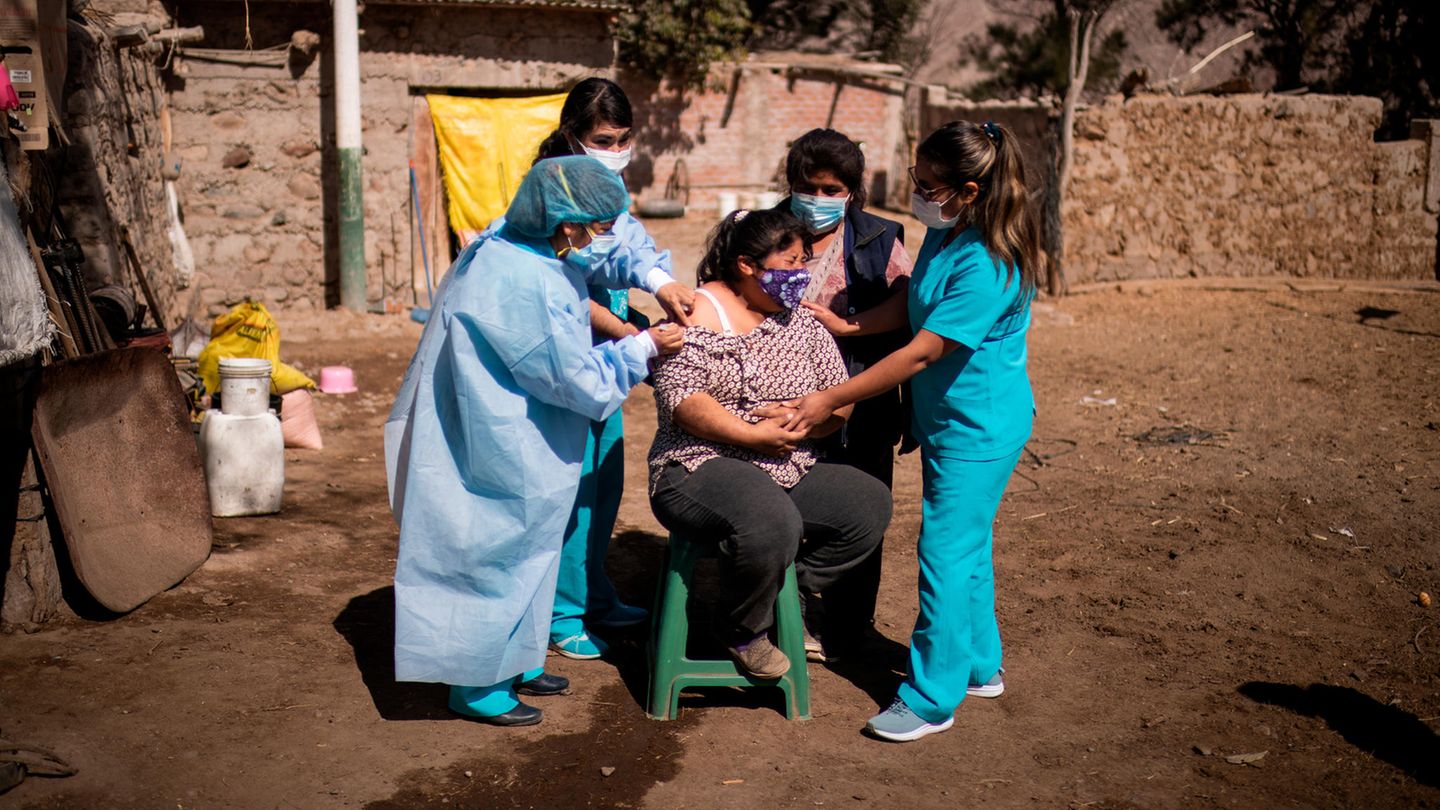The corona variant lambda recently spread in Latin America. Recently there have also been cases in Europe. However, many questions about the variant are still open.
Alpha, beta, gamma or delta: different variants of the original coronavirus are circulating around the world. Those who can prevail usually have one or more fitness advantages. The mutant Delta currently prevailing in Germany probably combines two features that give it advantages: On the one hand, the virus is considered more contagious and, at the same time, current vaccines seem to be
There are currently many reports of a variant that initially spread in South America. It bears the name Lambda or C. 37. It is not entirely clear where the renewed interest in Lambda came from. Presumably plays a role. There, Lambda is suspected of being responsible for an outbreak with around 80 infections, reports Spanish media. The variant has also been detected in Great Britain and Germany, albeit sporadically. What is known about the mutant
In which countries has lambda spread so far?
The variant was documented for the first time in Peru. According to reports, Lambda already accounted for 81 percent of the corona cases in the country in April 2021. Genome sequencing data suggest that the variant is mainly common in Latin America, including Chile, Peru, and Mexico. The variant has already been proven in the USA. , which collects and evaluates data on the occurrence of Sars-CoV-2 variants worldwide, currently lists 649 detected lambda cases in the USA.
In principle, it is not uncommon for individual virus variants to spread across national borders. However, if variants repeatedly lead to outbreaks or if they have mutations that indicate, for example, greater transferability, they are put under observation. This has recently been the case with Lambda.
How does the World Health Organization (WHO) rate the variant?
The variant has been available since June 15th. It is one of a total of 13 “Variants of Interest” (VOI).
A variant becomes a VOI if it has genetic characteristics that are associated with altered viral properties. At the same time, VOI lead to numerous contagions or clusters in different countries or have other characteristics that indicate an emerging risk to global public health.
There is currently no classification as a variant of concern (“VOC”) for Lambda. A mutant becomes a VOC if its properties have changed compared to the original variant in such a way that it is more contagious, for example, or is better able to escape the immune response. Corresponding evidence is required for this. The WHO currently lists: Alpha, Beta, Gamma and Delta.
Which mutations does Lambda have?
The variant has six changes in the virus’ spike protein. These changes are always under special observation, as the virus uses the protein to dock on human cells. At the same time, the immune response triggered by vaccines is primarily directed against the spike protein. If the protein changes, antibodies may work less well against the virus or the virus may dock even better with human cells. However, it is also conceivable that mutations do not have any advantages for the virus.
exhibit several changes to the spike protein. So it is not a unique selling point of the Lambda variant.
What information does the RKI provide about the Lambda variant?
The Robert Koch Institute (RKI) currently lists 103 confirmed lambda cases for the entire year 2021. The proportion of the variant reached its preliminary peak in the 22nd calendar week at 0.4 percent. After that, the proportion of the variant fell again and was most recently again at zero percent (KW 25).
For comparison: During the same period, Delta became the dominant variant in Germany. While the proportion of Delta in the 22nd calendar week was 7.8 percent of all samples examined, it has now risen to 59.4 percent (calendar week 25).
According to GISAID, Spain (55), France (14) and Italy (11) already have lambda cases. The portal also lists seven cases in Great Britain. Overall, however, the numbers are at a low level.

How dangerous is lambda?
This question can currently hardly be answered. Although there are indications that the variant could be more infectious due to its mutations or that it could better escape the body’s immune response, this has ultimately not been proven. If relevant data are available, the WHO would initially classify lambda as a variant of concern.
In Germany, Lambda has so far not been able to establish itself in the past few weeks, despite individual evidence. In this country, the focus is rather on the delta variant of the virus. that Delta could drive the number of cases up again in the coming weeks towards autumn.
A high vaccination rate of at least 85 percent could contain a possible fourth wave in autumn.




